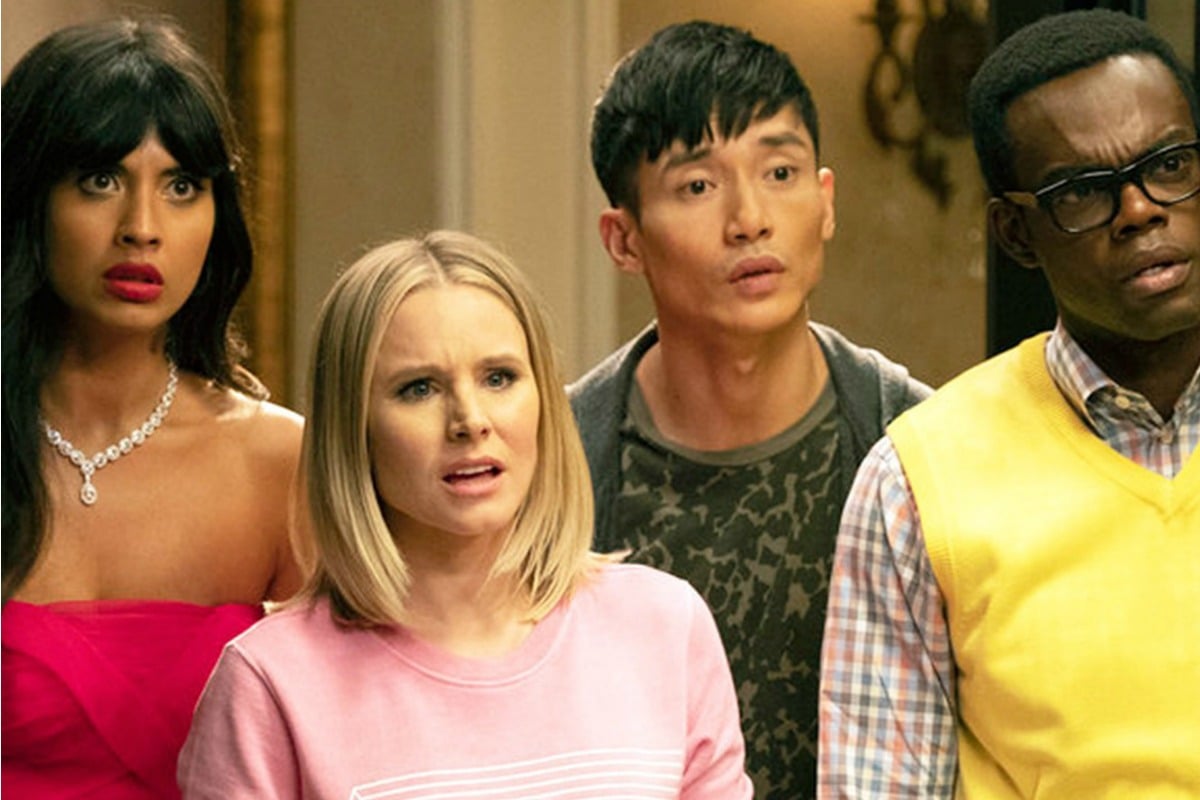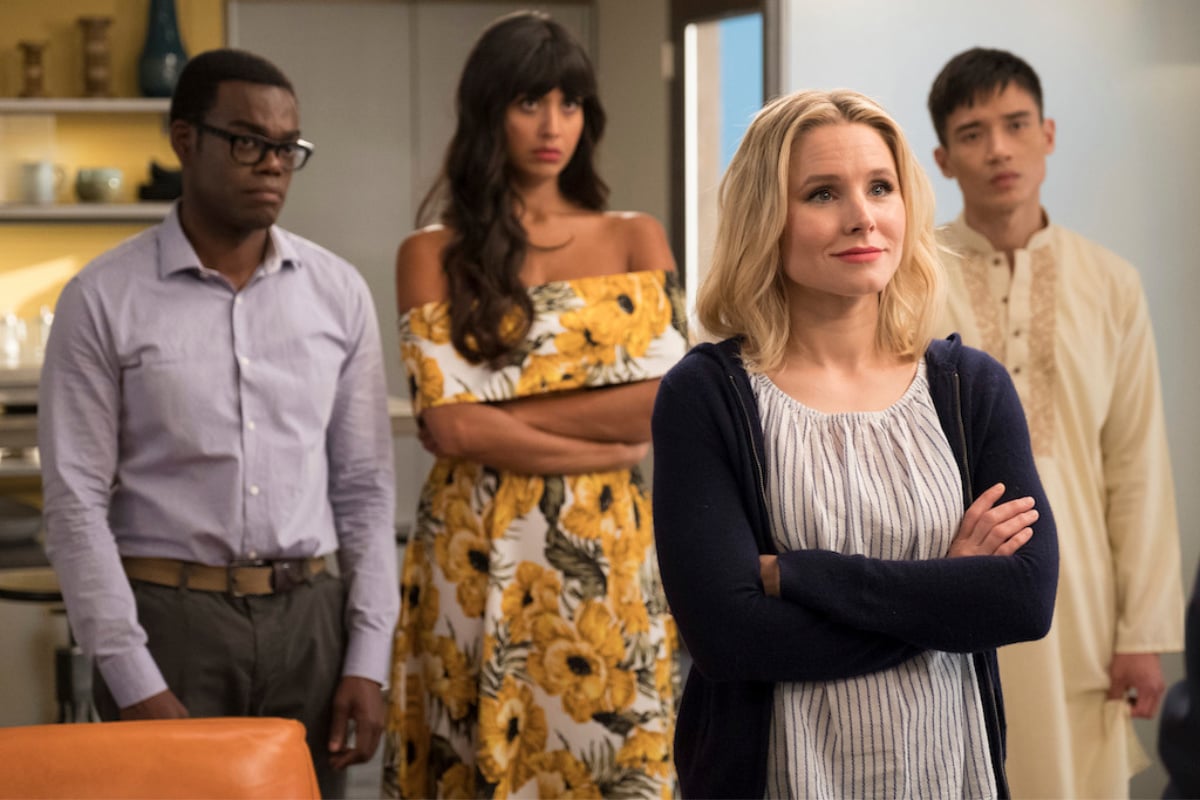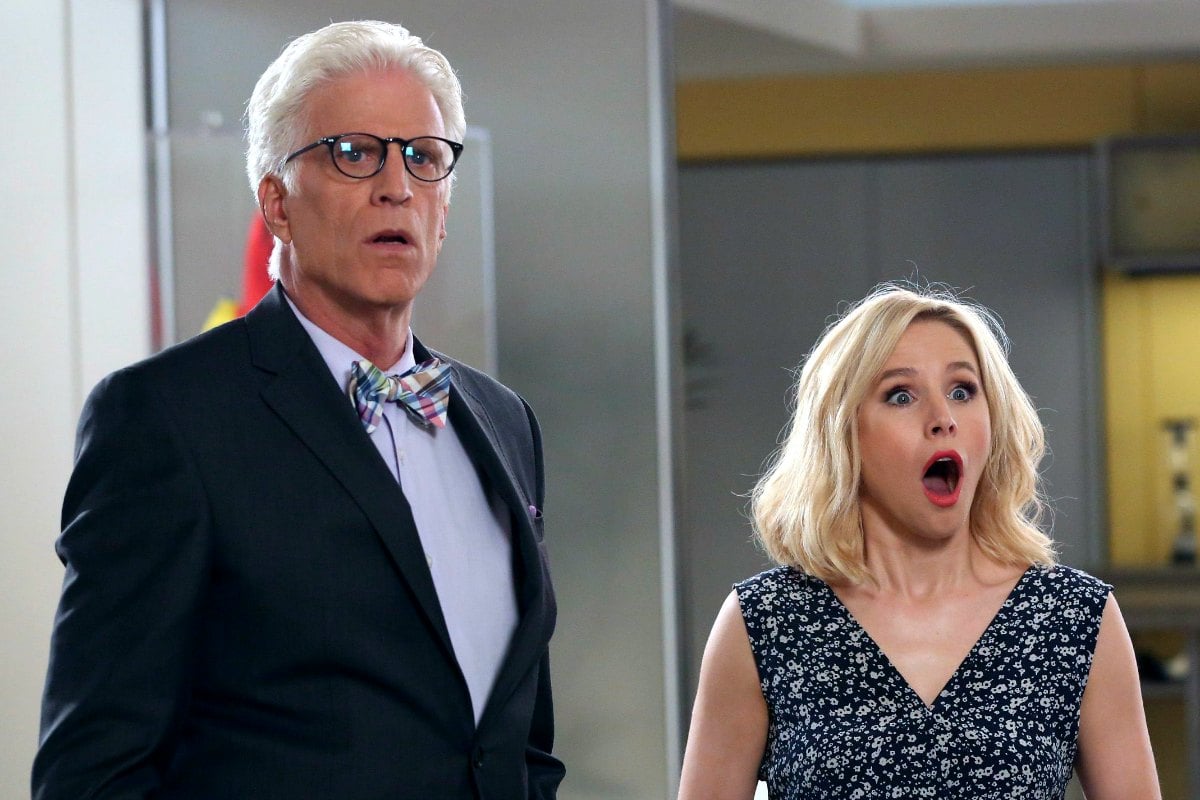An ode to The Good Place, which taught us the journey is more important than the destination.
by Chelsea McLaughlin
It’s time to say goodbye to The Good Place.
When the final hour-long episode drops on Friday, we’ll finally learn how the journey to well, the ‘Good Place’, ends for Eleanor, Chidi, Jason, Tahani, Janet and former demon torturer-turned friend Michael.
The Good Place is thoroughly entertaining. It’s funny, really funny, the characters are equal parts flawed and endearing and it is the perfect palate cleanser after a tougher watch (I consider an episode or two required viewing after I watch The Handmaid’s Tale, because yikes).
In the penultimate episode, the gang finally arrive in the real Good Place only to quickly realise its not as good as it seems. Oh, of course.
In the Good Place, everything you could possibly want is a reality. Those cute sunglasses you once saw in an Instagram ad? Here you go. Actually good passport photos? Fork yeah. Want to go-kart with monkeys? Okay, Jason.
But the thing is… There’s only so many times you can race a primate around a track in a small motorised vehicle before it becomes a little bit, well, boring.
Yes, The Good Place did spend four entire seasons building up to this moment. And then, in one 22 minute episode, it turned the whole thing on its head.
Eternal life without purpose is boring, so Michael and friends come up with another option: If you want, dear Good Place residents, you can walk through a door to nothingness. Suddenly life in the Good Place can be finite, which in turn gives its inhabitants something new to appreciate: Existing.

The synopsis for the show's finale doesn't give much away: "Various conversations occur, between various groups of people," it reads.
That's... helpful.
But how the show ends - whether we'll see Eleanor and Chidi live together forever, or watch them walk through the door to nothingness - doesn't really matter, does it? (Although, never fear, Kristen Bell believes we'll be satisfied).
The most important part of The Good Place is the journey, not the destination.
As we laughed at each of Tahani's humble brags and Eleanor's anecdotes ("First of all, throwing sand is an excellent way to put out a vodka fire"), enjoyed Michael's fangirling at mundane human activities, daydreamed about what we'd ask Janet, The Good Place also made us think about our own lives.
'What does it mean to be a good person?'

Sure. A points system rating our every human interaction can attempt to make the answer to this question simple, but it's not.
Series creator Michael Schur learned that himself through the creation of the show.
"What we found, as we discussed it and wrote it and executed it, is that some very, very smart people over the last, say, 3000 years have had a lot of very different opinions about that question," he said at a Television Critics Association event.
"At the beginning I pitched it as 'what it means to be a good person,' and at the end, I think I would describe this as a show that makes the argument that we all ought to try harder than we are."
Basically, there's no checklist to becoming a good person.
Goodness is different for everyone. Tahani's goodness is different to Jason's goodness, and my brand of goodness is entirely different to your brand of goodness. Plus, all our brands of goodness will look different in a month, a year, a decade's time.
And being a good person is hard. It's not automatic.
It doesn't matter how far from goodness we think we are. Humans, The Good Place has reminded us, are redeemable.
As long as we actively try to be a better person each day that we were the day before, well, that should be enough to stop eternal torture from a group of demons.
...Hopefully.
Want a cheeky $50? Tell us what you think